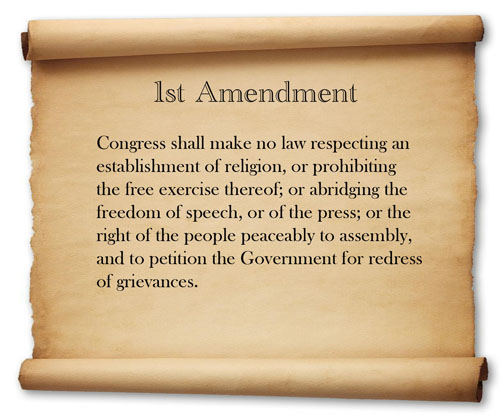

The First Amendment prevents government from requiring you to say something you don't want to, or keeping you from hearing or reading the words of others (even if you never speak out yourself, you have the right to receive information).The First Amendment protects us against government limits on our freedom of expression, but it doesn’t prevent a private employer from setting its own rules.The First Amendment is neither “left-wing” or “right-wing.” It can be used to push for social and political change, or to oppose change.If you’re in the U.S., you have freedom of speech, religion, press, assembly and petition. There’s also no citizenship requirement for First Amendment protection. They are guaranteed to you the day you’re born. There’s no “legal age” you have to reach to exercise your First Amendment freedoms.Before agreeing to accept the Constitution, the Founders of our democratic republic demanded that these freedoms be protected by an amendment to the original document – the First Amendment.Together, these five guaranteed freedoms make the people of the United States of America the freest in the world.

The five freedoms it protects: speech, religion, press, assembly, and the right to petition the government.
FIRST AMENDMENT FREE
“Congress shall make no law respecting an establishment of religion, or prohibiting the free exercise thereof or abridging the freedom of speech, or of the press or the right of the people peaceably to assemble, and to petition the Government for a redress of grievances.” – The First Amendment to the U.S.


 0 kommentar(er)
0 kommentar(er)
